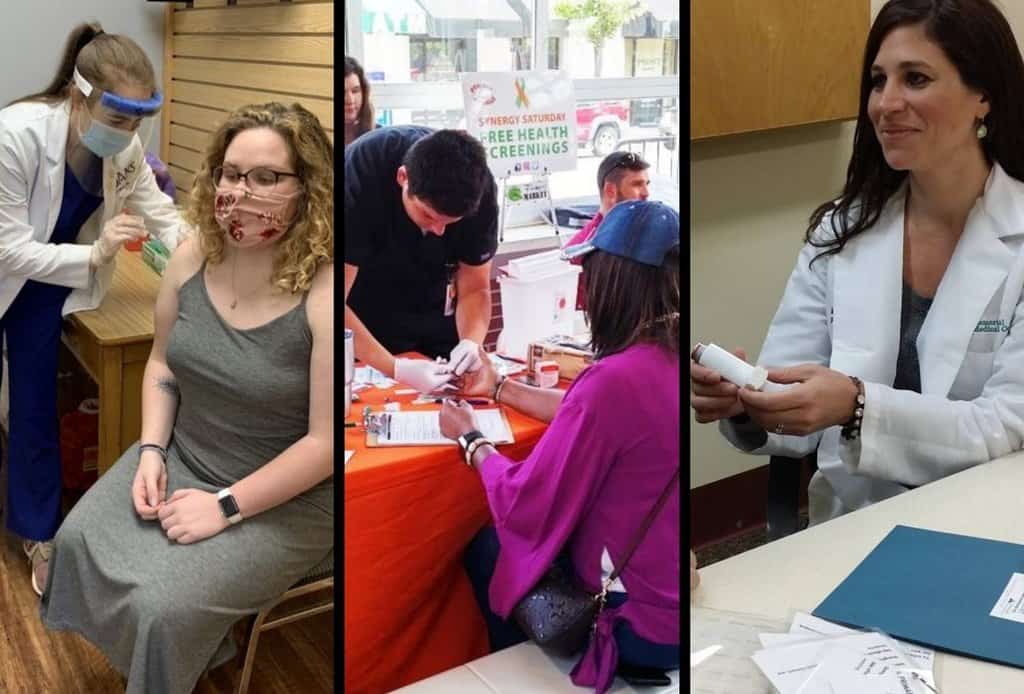Written by Emily Sumler, pharmacy student at UAMS College of Pharmacy, Vice Chair of APhA-ASP Generation Rx
October is American Pharmacist’s Month, and there is no better time to reflect on the positive impact pharmacists have in our community. When most people think of a pharmacist, they immediately think of the person behind the pharmacy counter who gives them their medication each month. However, pharmacists do much more that often goes unnoticed.
Pharmacists use their knowledge to ensure that each prescription is the correct medication and dose for treatment. Mistakes are detected every day by pharmacists that protect patients from potential life-threatening consequences. Pharmacists also communicate with patients to make sure they know how to correctly take their medication and what side effects, if any, to expect.
Many pharmacists work in other areas of healthcare, including hospitals and doctors’ offices. These pharmacists collaborate with doctors to decide on their patients’ treatment. Pharmacists also have a major role in community vaccinations. Local pharmacies are the most accessible place for people to get their annual flu shot.
Pharmacists are easy to contact for information about your health. Any person can ask questions about their medication or get recommendations about over-the-counter products by just walking into their local pharmacy. There is no need for an appointment, and the pharmacists are always available to answer your questions.
Dr. Whitney Bussell, PharmD. is a pharmacist at a local Kroger. She describes a medication error she discovered that saved a patient from serious health complications.
“It was a regular day at the pharmacy when a patient came in to pick up a prescription sent in by her dentist. One of the prescriptions was for Diclofenac delayed release 75 mg tablets to be taken twice daily. This prescription wouldn’t necessarily be suspicious from a dentist as it can treat inflammation and pain, which some dental procedures may cause. The dentist also prescribed an antibiotic.
“When I went to counsel her on the new prescriptions, I noticed she might be pregnant. As awkward as it is to ask a woman if she is pregnant, I’m glad I asked because she was! Diclofenac is in a category of medications called non-steroidal anti-inflammatory drugs, or NSAIDs, for short. This class of medications should not be given to pregnant women because it can cause bleeding and sometimes miscarriage.
“When I explained what the medication was for, she told me she had asked her dentist to call in Diflucan to go along with her antibiotic to prevent a yeast infection, not Diclofenac. We called the dentist to correct the mistake and filled the correct medication for her. She was very grateful we caught the error and helped prevent potential harm to her unborn child.”
October is a time to acknowledge everything pharmacists do for our community. Next time you see a pharmacist, thank them and wish them a happy American Pharmacist’s Month!



